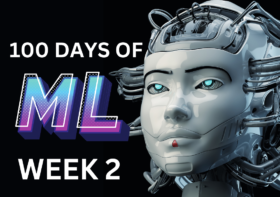ChatGPT: It’s the Year 2032 and Siri is Walking the dog

Table of Contents
ToggleThe recent release of ChatGPT and the tech community’s response
Unless you have been living under a rock, the last couple of weeks have been mayhem in the tech world. I spent the first three nights sleepless, playing around like it was 1994 and Donkey Kong Country was just released. The recent release of ChatGPT, a chatbot from OpenAI that can generate human-like text, has sent shockwaves through the artificial intelligence community and beyond. While the capabilities of this new technology have impressed many, there is also a sense of fear and uncertainty about what the future holds, leaving us all wondering if we’ll wake up tomorrow and see Siri walking the dog.
Advocacy and accountability in AI
One major concern accompanying ChatGPT’s rollout is the issue of advocacy and accountability. While AI may be able to perform tasks faster and more efficiently than humans, it does not yet have the ability to understand or advocate for the needs of humans. This leaves us with the important task of ensuring the ethical and responsible use of AI.
ChatGPT’s limitations as a machine
But before we get too carried away, it’s important to remember that ChatGPT is still a machine, and it has a long way to go before it can truly hold its own in a conversation with a human being. While AI has made significant progress in terms of its ability to mimic human language and thought, it is not yet on par with a human’s level of understanding and comprehension.
The potential of AI to be a powerful tool for good
AI has the potential to be a powerful tool for good, but it is crucial that we ask the tough questions and demand transparency from tech companies. We need to ensure the ethical use and development of AI, and that it serves the greater good rather than just the interests of a few wealthy tech giants.
AI’s role in advocating for important causes
That being said, AI is not just useful for everyday tasks. It has also been used to advocate for important causes. For example, AI has been used to analyze data and identify patterns that can help predict and prevent human rights abuses. It has also been used to monitor social media activity and identify hate speech or other types of online abuse.
The risks and challenges of the rise of AI
However, we should not downplay the potential risks and challenges that come with the rise of AI. As we continue to see advances in the field, it’s important to have open and honest conversations about the potential impacts on society and the job market. Some fear that AI could lead to widespread unemployment and societal collapse, while others see it as a technological advancement that will create new jobs and industries.
AI’s potential to create new jobs and industries
One way to approach this issue is to recognize that AI has the potential to create new jobs and industries, rather than simply replacing existing ones. In fact, some experts predict that AI could lead to the creation of millions of new jobs in fields such as data science and machine learning. While AI has the potential to automate certain tasks and potentially displace some workers, it also has the potential to create new roles for data scientists, machine learning engineers, and AI ethics experts.
The issue of bias in AI
It’s also important to recognize that AI is not perfect and has been known to be biased, whether intentionally or not. For example, facial recognition software has been found to be less accurate when it comes to identifying people of color. And AI-powered hiring algorithms have been known to perpetuate existing biases and discrimination in the workplace. This is why it’s crucial to have checks and balances in place to ensure that AI is used ethically and responsibly.
The importance of information and data in training AI models
One of the biggest concerns in this regard is the information fed to us by AI is chosen and selected for a purpose. With the proliferation of fake news and misinformation, it’s crucial that we have a say in the data that these models are trained on and the algorithms that are used to process it. We don’t want to end up in a situation where a handful of tech giants have the power to shape our understanding of the world and control the information we consume.
Balancing the challenges and opportunities of AI
Overall, the rise of AI presents both challenges and opportunities. While it’s important to be cautious and thoughtful about how we use this technology, we should not let fear cloud our judgment. Instead, we should approach the rise of AI with a healthy dose of skepticism and work to ensure the development of ethical and responsible information, for the equitable benefit of all.
Don’t miss out on this week’s posts – we’ll be using ChatGPT to create some fresh, unique content for your digital business. Trust us, you don’t want to miss out on this!
So make sure to keep an eye on our blog and follow us on social media to stay up to date. You won’t want to miss out on this epic content creation action! #ContentIsKing #DigitalBusiness #ChatGPT



